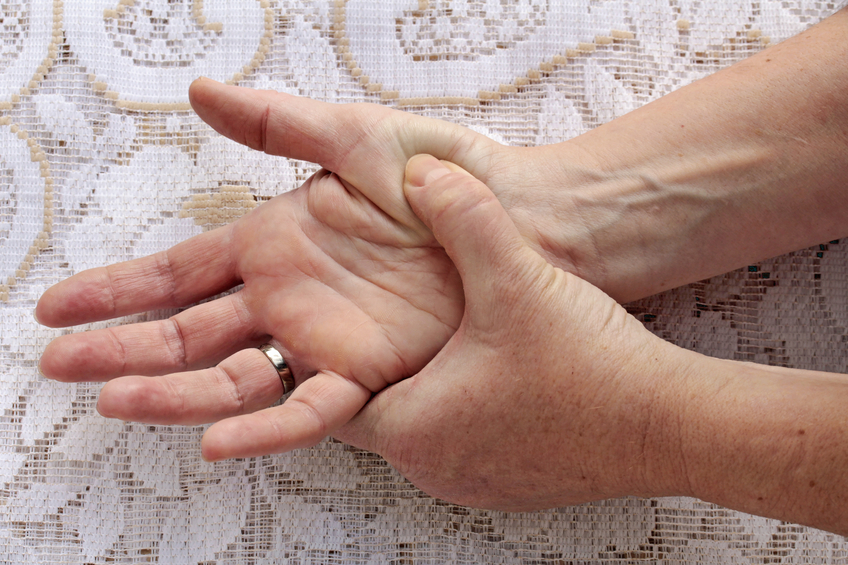Understanding Arthritis and its Symptoms

The first step to living with arthritis is to understand exactly what it is.
Arthritis comes in many forms – one of the most common being osteoarthritis, also known as degenerative joint disease – which causes pain, stiffness and swelling around one or more joints in the body. Osteoarthritis usually lasts longer than two weeks and can involve any joint, but usually occurs in hands and in weight bearing joints such as hips, knees, feet and spine.
Determining the cause of osteoarthritis can be difficult, because often several factors contribute to an individual developing this common problem. Some possible causes could be genetics, old age, excess body weight, previous injury causing joint damage, occupations such as construction or assembly line workers, high level sports and illness.
Another common form is rheumatoid arthritis – an autoimmune disease. Rheumatoid arthritis causes redness, pain, swelling or a warm feeling in the lining of a joint. The inflammation may also affect other internal organs, such as the eyes, lungs or heart. It can affect any joint, but the most commonly affected are in the hands, wrists and feet.
- There are a few key differences between osteoarthritis and rheumatoid arthritis:
Stiffness in osteoarthritis tends to be brief while the stiffness is rheumatoid arthritis is worse after rest and often lasts 30 minutes or longer. - Osteoarthritis typically affects larger weight-bearing joints, such as the knees and hips; whereas rheumatoid arthritis more often affects smaller joints of the hands, wrists and feet.
- Rheumatoid arthritis can also affect the knuckles – an area generally not affected by osteoarthritis.
Another disease that can cause painful and swollen joints is systemic lupus erythematosus (commonly known as SLE)–another autoimmune disease that affects various parts of the body, including the skin, joints, heart, lungs, blood, kidneys and brain – and gout, which is caused by too much uric acid in the body not being adequately flushed out by the kidneys. Each of these diseases affecting joints have different symptoms. Here are some signs to look out for when suspecting a loved one is developing arthritis:
Osteoarthritis symptoms
- stiffness after prolonged rest
- pain in a joint during or after use
- discomfort in a joint before or during change in weather
- swelling or loss of flexibility in a joint
- bony lumps that develop on the end or middle joint of the fingers
Rheumatoid arthritis symptoms
- pain and swelling in smaller joints of the hands and feet
- overall aching or stiffness, especially after sleeping
- joints that are swollen, painful and warm to the touch
Systemic lupus erythematosus symptoms
- a red rash occurring over the cheeks and bridge of the nose
- excessive skin irritation to sunlight
- small sores in the mouth
- inflammation of the lining of the lungs
- seizures
- persistent increase in hair loss and headaches
Gout symptoms
- joint pain and swelling
- acute joint inflammation with heat and redness
- accumulation of uric acid or urate crystals in the joints
The first thing to do when noticing any arthritis-related symptoms is to consult a doctor, who can then provide a proper diagnosis.
When diagnosing any form of arthritis, doctors will first conduct a physical examination to determine which joints are affected. In the case of osteoarthritis, joints will be painful if moved to extremes and may be thicker than normal. If painful joints involve both sides of the body, rheumatoid arthritis is more likely to be diagnosed and lab tests will be done for confirmation. Special blood tests are available to detect an antibody called rheumatoid factor which may confirm the presence of rheumatoid arthritis. Other blood tests may be used to detect the presence of other forms of arthritis such as gout or lupus. X-rays may also show bone spurs in joints and may also be used to follow the progression of arthritis over time.
It’s crucial to diagnose arthritis in its early stages to effectively be able to treat it before it worsens. Once a loved one is diagnosed with arthritis, family and informal caregivers should be educated to assist the individual in living with this condition.
Bayshore is pleased to provide information that educates you as you strive to care for your loved ones. This newsletter contains information about arthritis. The information is not advice and should not be treated as such. For more information on arthritis, please consult your doctor.
